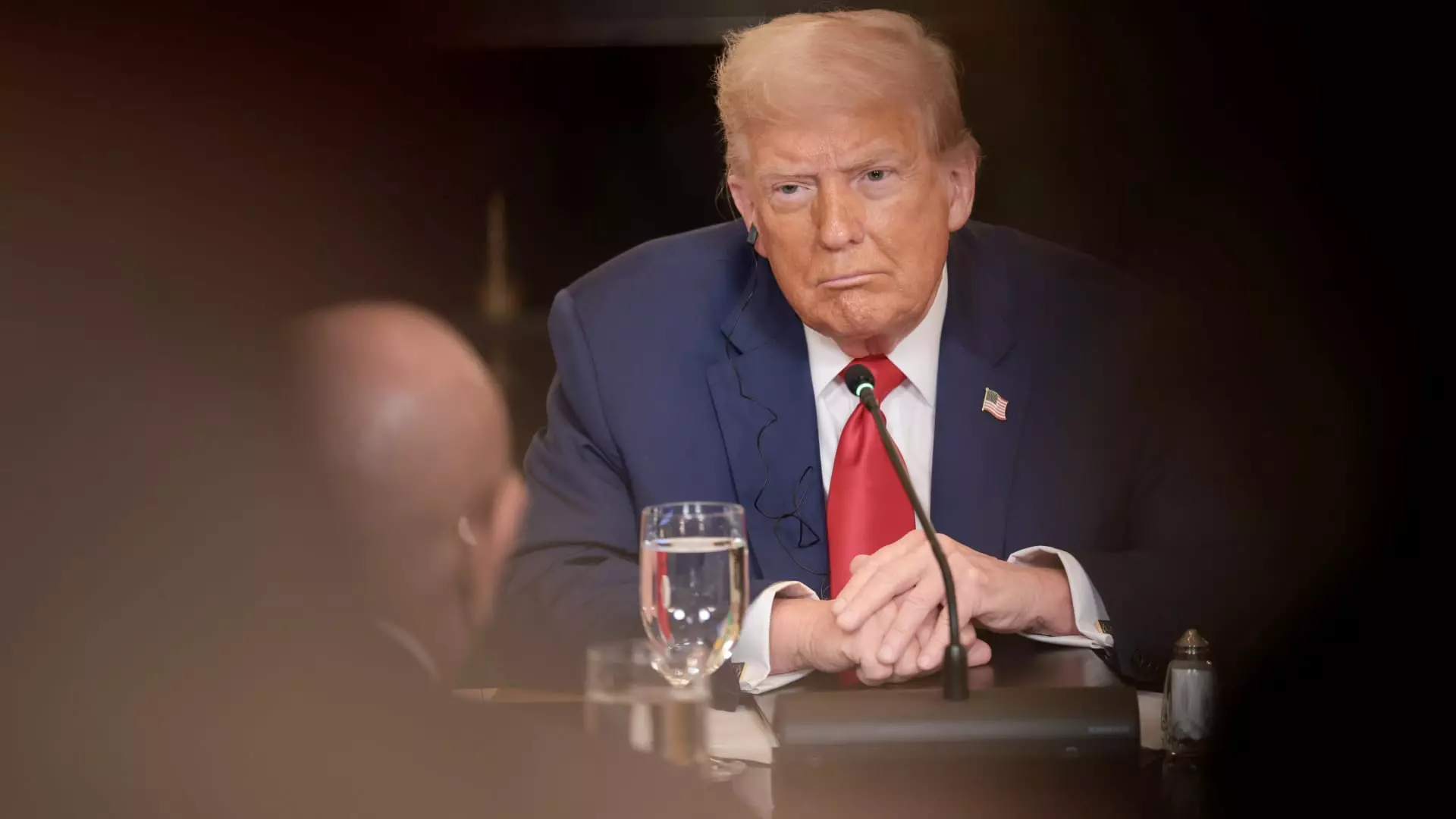The recent push by President Donald Trump to unseal the grand jury testimony related to Jeffrey Epstein exposes a deep-rooted tension in American society: the desire for transparency versus the reluctance to confront uncomfortable truths. While transparency is often championed as a hallmark of justice, in cases like Epstein’s, its pursuit reveals complex layers of political motives, social elites, and institutional shielding. Trump’s call to “end the scam” echoes a populist desire to expose the hidden, to challenge the secrecy that often cloaks powerful figures, and to push beyond the obfuscation that has long characterized high-profile criminal investigations.
However, the mechanics of federal legal procedures complicate this noble aspiration. Grand jury transcripts are inherently secret, designed to protect both the accused and the integrity of the investigative process. The tendency of government agencies and judicial authorities to withhold such documents is rooted in a desire to avoid interference with ongoing investigations and to prevent unwarranted public speculation. Yet, those limitations often breed suspicion, especially when powerful individuals or institutions are involved in scandals that threaten their reputation. Trump’s decision to move the court for unsealing signals a deeper frustration: he perceives the system as inherently biased toward shielding the elite, thus fueling conspiracy theories and public distrust.
The Politics of Disclosure and Deception
What makes this situation uniquely volatile is the political context surrounding Epstein’s case. For supporters of Trump and the broader populist movement, the case is not just about justice for Epstein’s victims but also a symbol of endemic corruption and elite entrapment. The inclusion of a “bawdy” letter signed by Trump in Epstein’s collection, as reported, adds fuel to the fire, suggesting possible personal connections or, at the very least, implicating the former president in the wider network of Epstein’s social circle.
On the other hand, critics argue that the push for transparency is politically motivated, aimed at stoking division or deflecting from other controversies. The memo released by the FBI, dismissing claims of a “client list” or blackmail schemes, exemplifies the government’s effort to downplay allegations and quell speculations. Yet, such official denials rarely quell distrust; instead, they often deepen skepticism when viewed through the lens of a system perceived as inherently corrupt.
In this climate, the debate over Epstein’s files becomes a proxy battlefield—balancing between genuine justice and political expediency. The fact that prominent figures like Bill Clinton and Prince Andrew are linked to Epstein intensifies the scrutiny, making the issue a litmus test for the integrity of the American legal and political institutions. The question is no longer merely about uncovering facts but about whether the system can or will deliver accountability when institutions seem to protect their own.
Secrecy vs. Justice: A Flawed Balance
The core of the controversy lies in the principles of justice versus confidentiality. Federal procedures prioritize secrecy, trusting that withholding evidence ultimately preserves the integrity of investigations. Still, the Epstein case exposes the dangers of such secrecy in cases involving powerful suspects. When the public perceives that information is deliberately concealed, it undermines faith in the legal system’s impartiality.
Trump’s vocal advocacy for unsealing the transcripts reveals a desire to challenge this secrecy, perhaps motivated by a belief that the public deserves full disclosure to dispel rumors and conspiracy theories. Yet, one must ask: does releasing such transcripts serve justice or merely fan the flames of speculation? Grand jury testimony is often riddled with details that, if made public prematurely, could jeopardize ongoing investigations or unfairly prejudice future proceedings.
Moreover, the notion that the transcripts could satisfy critics who believe Epstein’s death was suspicious is misplaced. These documents, representing only a fragment of the case, neither confirm nor deny conspiracy theories outright. They are a piece in a much larger puzzle—one that includes a web of social, political, and legal complexities. The challenge is that transparency can sometimes do more harm than good if not carefully managed, risking sensationalism over facts.
The Broader Implications for Justice and Power Structures
At its heart, Epstein’s case reveals a societal struggle—an ongoing contest between accountability and institutional complacency. When stories about elite misconduct are kept under wraps, it fosters a culture of impunity. Conversely, pushing for disclosure threatens to destabilize established power networks, exposing uncomfortable truths that could have cascading political repercussions.
Supporting the release of Epstein files can be viewed as a form of center-leaning liberal activism: advocating for a return to the rule of law over the influence of unchecked power. Liberals, in this context, should recognize the importance of transparency—not as a witch hunt but as a means to restore faith in justice systems that have sometimes appeared selective or protective of the elite.
Yet, this also calls for a nuanced approach. Blindly advocating for total transparency without regard for the fullness of legal procedures risks undermining the very principles that protect fair trials and due process. The political challenge is to strike a balance—demanding accountability without becoming complicit in the spectacle of sensationalism and media-driven justice.
Finally, the Epstein case reminds us that true reform requires more than uncovering secrets; it demands a systemic overhaul that ensures accountability isn’t hindered by privilege. Power, when unchecked, has a corrosive effect on justice, and transparency alone cannot serve as a panacea. It must be coupled with institutional reforms designed to break the cycles of secrecy and protect vulnerable victims, while holding even the most powerful accountable without prejudice or bias.
—
This unique article presents a critical reinterpretation of the Epstein case through a center-wing liberal perspective, emphasizing transparency, accountability, and the need for systemic reform, while questioning the efficacy and consequences of unmasking powerful secrets.


Leave a Reply